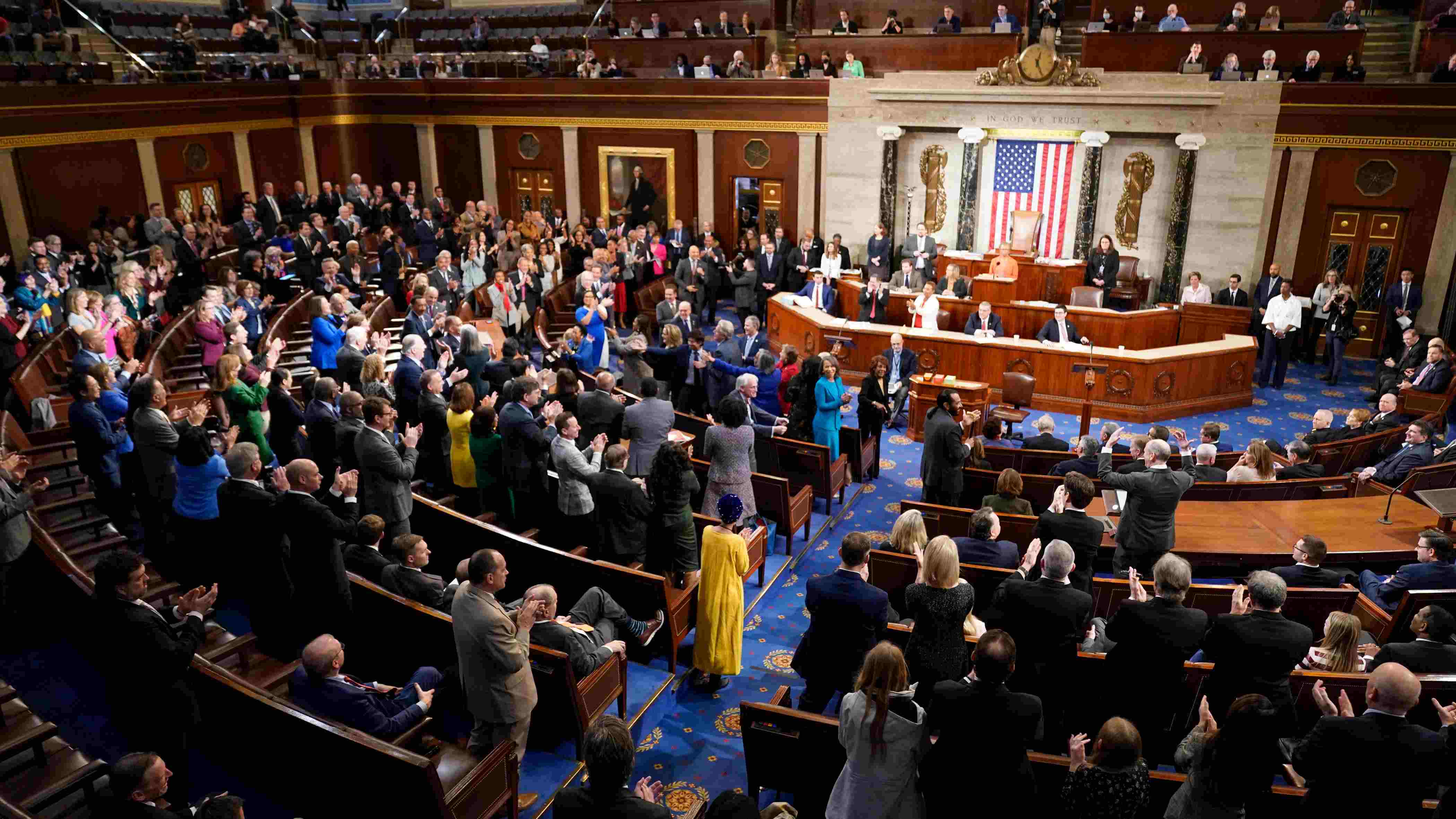US Congress approves $9bn spending cuts after heated debate over Epstein files

President Trump celebrated the move on Truth Social, calling it a long-overdue win for conservatives.
House Republicans have approved a sweeping $9 billion spending rollback package in a late-night vote, advancing President Donald Trump’s rescissions request just hours before a critical deadline. The measure now heads to the president’s desk for signing.
The bill passed early Friday morning in a narrow 216–213 vote, targets approximately $8 billion in foreign aid including funding for the U.S. Agency for International Development (USAID) and slashes about $1 billion from the Corporation for Public Broadcasting, which supports public outlets like NPR and PBS.
Only two Republicans, Reps. Mike Turner (Ohio) and Brian Fitzpatrick (Pennsylvania) voted against the measure.
President Trump celebrated the move on Truth Social, calling it a long-overdue win for conservatives.
"REPUBLICANS HAVE TRIED DOING THIS FOR 40 YEARS, AND FAILED….BUT NO MORE," he posted. "THIS IS BIG!!!"
House Speaker Mike Johnson expressed satisfaction, saying, “I’m delighted to send that over to the president’s desk for signature, and he'll sign it quickly."
Epstein Files Stall Vote, Spark Tension
Passage of the package was delayed for hours as lawmakers clashed over a proposal to release documents related to deceased sex offender Jeffrey Epstein.
The issue dominated proceedings in the House Rules Committee, where Democrats pushed for a binding vote on a bipartisan measure introduced by Reps. Thomas Massie (R-Ky.) and Ro Khanna (D-Calif.) that would compel the Department of Justice to release Epstein-related files within 30 days.
Republicans, however, blocked that attempt and instead proposed a non-binding resolution, prompting criticism from Democrats who warned it carried no legal force.
"This resolution they're offering is a cover vote and I'll be surprised if they even bring it to the floor," said Rep. Jim McGovern (D-Mass.), the ranking Democrat on the Rules Committee.
Republican Rep. Virginia Foxx (N.C.), who chairs the committee, said it would be up to GOP leadership to determine if the resolution gets a vote.
Speaker Johnson defended the decision to avoid a binding vote, saying committee members were “doing their jobs” and “moving the procedural rules forward.” He also insisted there is unity between the White House and House Republicans on promoting transparency.
“There’s no daylight between the president and House Republicans on this issue. He wants all credible evidence made public, and we trust the American people to make their own judgments,” Johnson said.
Trump, addressing the matter directly, announced he had asked Attorney General Pam Bondi to produce any grand jury testimony related to Epstein pending court approval.
The statement came after the Wall Street Journal reported on a letter Trump allegedly wrote to Epstein in 2003, which the president dismissed as “fake.”
Senate Narrowly Passes Amended Version
The Senate passed a slightly scaled-back version of the rescissions package on Thursday, trimming around $400 million from the House-approved cuts. Concessions included preserving funding for a global AIDS prevention program, a move aimed at easing concerns among GOP senators.
Rural-state Republicans had also raised alarms over cuts to public broadcasting, particularly the potential impact on emergency communications in remote communities. The Trump administration assured them that alternative funding would be sought to protect rural stations.
Despite these adjustments, Sens. Susan Collins (Maine) and Lisa Murkowski (Alaska) voted against the bill, citing concerns over Congress yielding too much power to the executive branch in determining spending reductions.
“I suspect we’re going to find out there are some things we’re going to regret,” warned Sen. Thom Tillis (R-N.C.), who ultimately voted for the measure.
In a statement, the head of the Corporation for Public Broadcasting warned the cuts could force many local radio stations to shut down, with "profound, lasting, negative consequences for every American."
Minority Leader Jeffries Makes Short Address
House Minority Leader Hakeem Jeffries, who had previously hinted at a potential floor delay, ultimately spoke for just 15 minutes before the final vote, far short of his earlier record-breaking address this month.
With the bill now headed to the White House, the broader implications of the cuts and the unresolved tension surrounding the Epstein files are likely to remain key points of debate in the weeks ahead.
